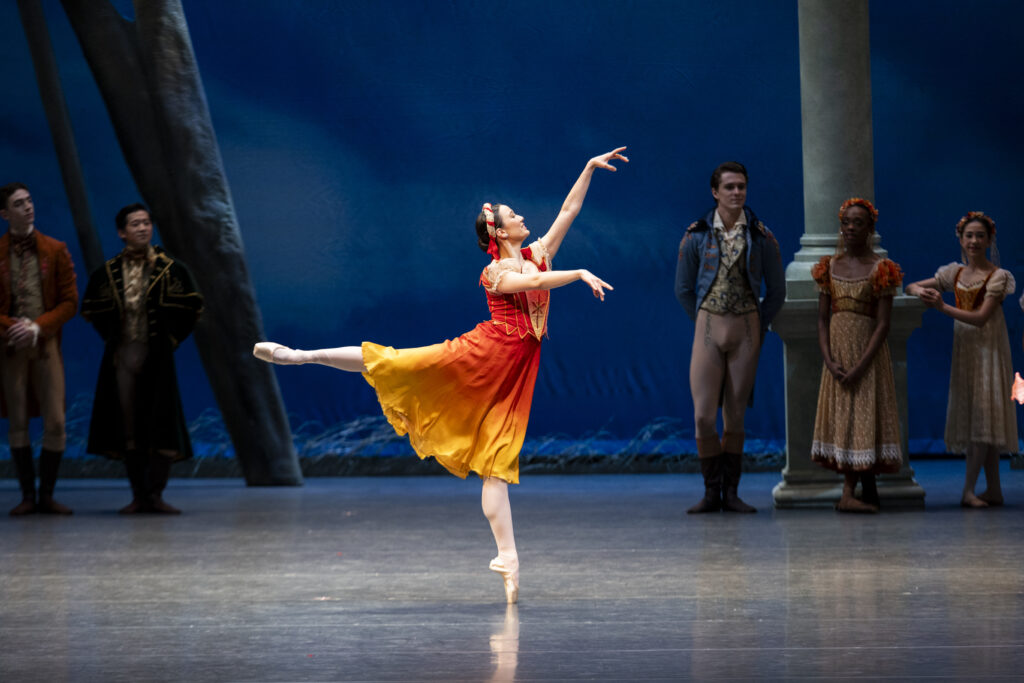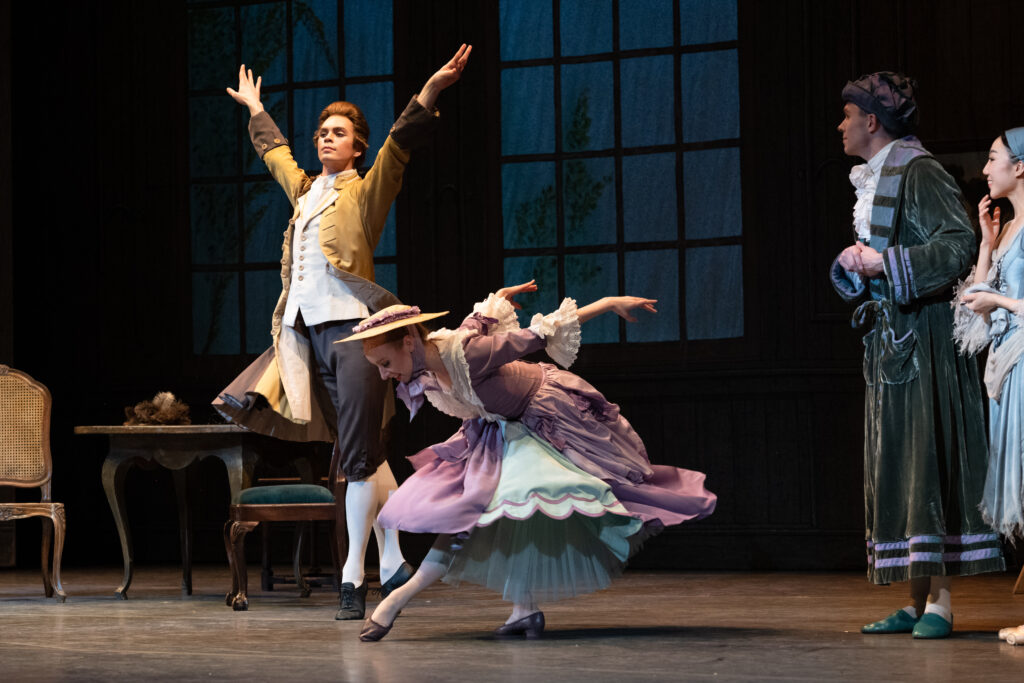How to Attend College While Dancing Professionally
When Genevieve Waldorf was a senior in high school, she felt conflicted about what to do next. “You’re on this cusp of deciding your future,” remembers the Pacific Northwest Ballet corps dancer. “I knew I wanted to go to college—it was really important for me to receive higher education and earn a degree. But I also wanted to pursue a career in professional dance.” Rather than choose just one path, Waldorf made the then-unconventional decision not to decide.
Waldorf applied to colleges and auditioned for professional training programs. In 2015–16, she completed her freshman year at Harvard University. In fall of 2016, she moved to Seattle to join PNB’s Professional Division and started dancing full-time. For the next eight years, Waldorf tirelessly pursued both of her dreams, spending the academic year dancing with PNB (she joined the company in 2018), and most summers taking classes in Cambridge, Massachusetts. This past spring, she graduated from Harvard as an applied math major with a focus on government and a minor in computer science.
Waldorf is one of a growing number of dancers choosing to pursue college degrees and professional careers at the same time. This is thanks to a rise in online options (spurred in part by the pandemic), unique relationships between dance companies and universities, and the dance world learning that being in college doesn’t take away from a dancer’s career—it enhances it.

Understand Your Options
For Waldorf, gathering information about her options was key. Knowing it might take her a while to finish her degree, she made sure to ask college admissions officers in-depth questions about their time-off policies. “It’s kind of a niche request that’s hard to find on the website,” she explains.
In her final year at the School of American Ballet, Boston Ballet corps dancer Alexa Malone took advantage of Fordham University’s relationship with New York City Ballet and jumped straight into college classes. When auditioning for companies, she made it a point to understand what opportunities would be available to her to continue her studies. “When I got into Boston Ballet II, I was even more excited realizing I’d be able to do college as well there,” says Malone, referencing Boston Ballet’s partnership with Northeastern University’s College of Professional Studies. After completing their first year in the second or main company, respectively, BBII dancers receive a 25 percent tuition discount, and company members are eligible for an 80 percent discount. A finance and accounting major, Malone is now about one third of the way through her degree.
Shaunna Vella, the program director of Liberal Education for Arts Professionals (LEAP) at Saint Mary’s College of California—which gives working dancers credit for their experience and offers flexible options to finish their degrees—says that she’s always eager for more dancers to investigate their options. “I want dancers to know that they don’t have to choose, and that there are places for them to pursue their academic goals while also having a professional career,” she says. “We want to be able to serve as many people as want to come.”
Studying Online
Before 2020, LEAP existed in just four cities, with dancers and professors meeting for class on Sundays and Mondays in hotel conference rooms and other rented spaces. After feeling frustrated watching dancers’ progress stall because they couldn’t complete the attendance requirements due to touring and last-minute scheduling changes, the LEAP team worked to create a virtual option. Right before the COVID-19 pandemic, LEAP was accredited as an online program and now offers programming in more than 25 states. “We have people constantly logging in from different countries while on tour, or people switching companies,” says Vella. “You don’t have to be beholden to one location.”
Malone’s Northeastern classes are all online too, although she tries to take advantage of the nearby campus by studying in the university’s library on her days off. The program includes a dedicated advisor from Northeastern, who comes to Boston Ballet’s studios twice a week to answer students’ questions. Despite the virtual nature of the program, Malone has found community amongst other enrolled company dancers. While still in BBII, she got to know an older soloist by working on class assignments together, and she often finds herself working on her laptop side by side with other dancers in between rehearsals at the opera house or in the studios’ hallways.

Waldorf completed nearly half of her coursework on campus during the summers, but she took advantage of the pandemic year when Harvard briefly offered online classes to fulfill requirements not offered during the summer course. Thanks to the rise of online opportunities available since COVID, Waldorf is now considering pursuing graduate studies remotely. “I’d be able to accomplish that much more easily,” she adds. “It would be so much more flexible.”
It’s Never Too Late
Malone and Waldorf were so used to focusing dually on ballet and academics while in high school that they were able to continue to strike that balance as professionals. But Vella notes that many of LEAP’s participants are current and former pro dancers returning to education, sometimes after decades away. “Dancers are so brilliant, but sometimes, when we don’t have access to these academic classes right at 18 or 19, there becomes a little bit of nervousness around going to a college program,” says Vella, noting that LEAP grads go on to become lawyers, doctors, choreographers, and more. “We want to make sure that we take away a lot of the barriers that feel like they’d be in front of a professional dancer.”
Waldorf was apprehensive when she left Harvard after her freshman year, aware of all of the quintessential college experiences she’d miss out on. But once at PNB, she found that it was worth it. “Getting to dance with the company was such a great feeling, and I knew that I was going to continue school, so it wasn’t lost forever,” she says. “I want other people not to be afraid to come up with an unconventional path.”





